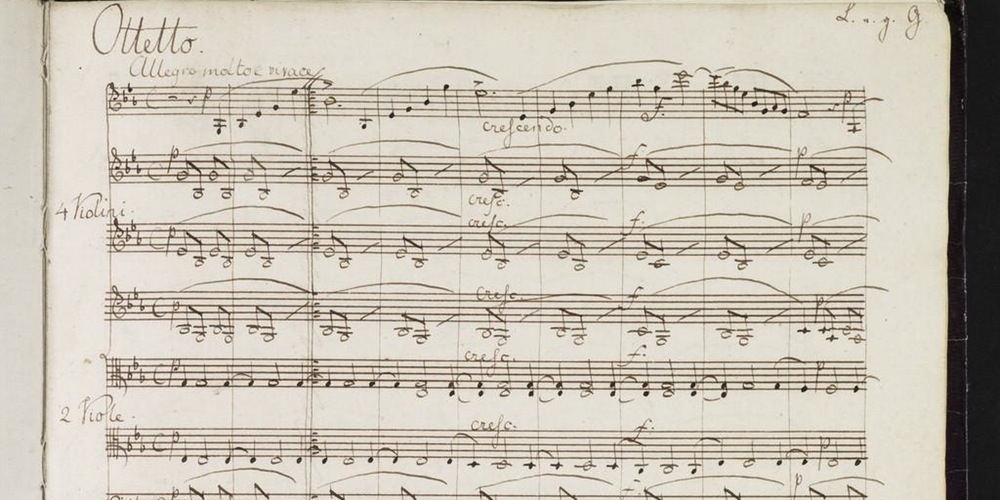If you’re beyond your teenage years, take a moment and try to remember what you were doing when you were 16 years old. Then listen to Felix Mendelssohn’s Octet in E-flat major, Op. 20 and consider that this is the music of a 16-year-old. It brims with youthful joy, virtuosity, vitality and a playful sense of delight in showing off. At the same time, there isn’t a hint of immaturity in this music. Amazingly, as a teenager, Mendelssohn was tapping into the deepest source of musical creativity.
The Octet’s final movement, built on an eight part fugue, quotes “And He Shall Reign” from the “Hallelujah” Chorus of Handel’s Messiah. Mendelssohn boldly interrupts Handel’s original motive with his own ending. There’s no way of knowing if the quote was intentional or subconscious. Throughout his life, Mendelssohn was drawn to the music of Handel and J.S. Bach. At age 20 he conducted a performance of the St. Matthew Passion, which inspired a renewal of interest in Bach’s music. You might hear a momentary hint of Bach’s Brandenburg Concertos in the development section of the Scherzo (in the passage following 23:39).
Completed in October of 1825, the Octet is scored for four violins, two violas and two cellos. In the score Mendelssohn writes:
This Octet must be played by all the instruments in symphonic orchestral style. Pianos and fortes must be strictly observed and more strongly emphasized than is usual in pieces of this character.
Whether I’m performing or listening to the Octet, I’m always amazed by the dramatic action going on in the inner voices. For example, listen to the explosive scale lines around 3:04 in the first movement. Throughout the piece, the eight distinct voices may suggest unique personas. Listen to the way they interact and converse with one another. Amid the final movement’s dense counterpoint, listen for the moment toward the end of the movement when Mendelssohn brings back fragments of the Scherzo (29:52).
Here is a recording of the Amati String Orchestra:
- 00:00 – Allegro moderato ma con fuoco
- 14:08 – Andante
- 21:22- Scherzo
- 25:52- Presto

